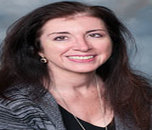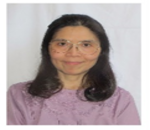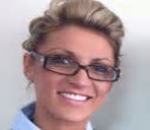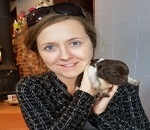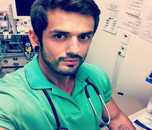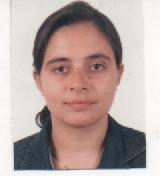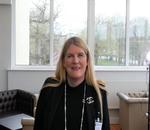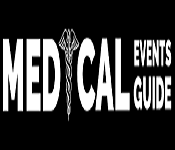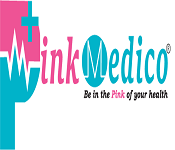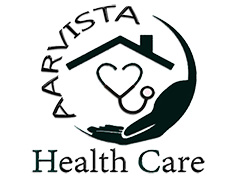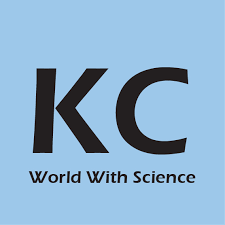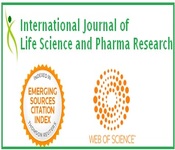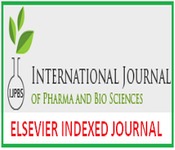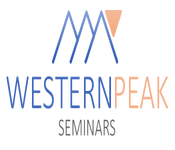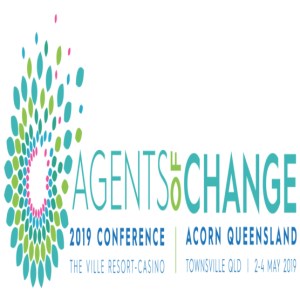
ConferenceSeries llc Ltd is pleased to invite you to participate in the 53rd World Congress on Nursing and Healthcare (Nursing Conferences) during June 21-22 2019 Brisbane, Australia with a theme, “Exploring Innovations and Latest Advancements in Nursing & Health Care”.
This year World Nursing Congress 2019 meeting makes a stage for specialist’s cooperation at the same time it is a global platform to discuss and learn about exchange research evidence, innovative ideas and models of best practice. World Nursing Congress 2019 covers a wide range of nursing topics such as Nursing Education, Nursing Practice, Healthcare Management, Nursing Types, Pediatric Nursing, Midwifery and maternal aid, Community Nursing, Emergency Nursing, Clinical Nursing, Mental Health Nursing, Critical care Nursing. The World Nursing Congress 2019 organizing committee is confident that participants will benefit from the high value scientific program. We welcome all the researchers/practitioners to join us at Brisbane, Australia for two days of stimulating discussions, knowledge sharing, and networking events.
Nursing Conferences 2019

ConferenceSeries llc Ltd is pleased to invite you to participate in the 53rd World Congress on Nursing and Healthcare (Nursing Conferences) during June 21-22 2019 Brisbane, Australia with a theme, “Exploring Innovations and Latest Advancements in Nursing & Health Care”.
This year World Nursing Congress 2019 meeting makes a stage for specialist’s cooperation at the same time it is a global platform to discuss and learn about exchange research evidence, innovative ideas and models of best practice. World Nursing Congress 2019 covers a wide range of nursing topics such as Nursing Education, Nursing Practice, Healthcare Management, Nursing Types, Pediatric Nursing, Midwifery and maternal aid, Community Nursing, Emergency Nursing, Clinical Nursing, Mental Health Nursing, Critical care Nursing. The World Nursing Congress 2019 organizing committee is confident that participants will benefit from the high value scientific program. We welcome all the researchers/practitioners to join us at Brisbane, Australia for two days of stimulating discussions, knowledge sharing, and networking events.
Nursing Conferences 2019
Theme: Exploring Innovations and Latest Advancements in Nursing and Health Care
World Nursing Congress 2019
ConferenceSeries llc Ltd is pleased to invite you to participate in the 53rd World Congress on Nursing and Healthcare (Nursing Conferences) during June 21-22 2019 Brisbane, Australia with a theme, “Exploring Innovations and Latest Advancements in Nursing & Health Care”.
The 53rd World congress on nursing aims to bring together experts from various disciplines of healthcare practice, education, research and management and provides an ambient platform for practitioners, public health professionals, researchers and students to sow and reap knowledge on recent and current advancements in the various fields of Nursing and Healthcare. Nurses and related healthcare professionals will have an ample opportunity to connect with colleagues, researchers, exhibitors and young talents and have discussions on emerging trends and challenges in real-time practice.
- Accepted abstracts will be published in Journal of Nursing and Care provided with DOI
- Global networking: In transferring and exchanging Ideas
This year World Nursing Congress 2019 meeting makes a stage for specialist’s cooperation at the same time it is a global platform to discuss and learn about exchange research evidence, innovative ideas and models of best practice. Nursing Congress 2019 organizing committee is confident that participants will benefit from the high value scientific program. We welcome all the researchers/practitioners to join us at Brisbane, Australia for two days of stimulating discussions, knowledge sharing, and networking events.
ConferenceSeries llc Ltd is pleased to invite you to participate in the 53rd World Congress on Nursing and Healthcare (Nursing Conferences) during June 21-22 2019 Brisbane, Australia with a theme, “Exploring Innovations and Latest Advancements in Nursing & Health Care”.
The World Nursing Congress 2019 will offer driving approach experiences and expert advancement in supporting exceptional patient results and upgraded care conveyance over the nursing workforce. Participants will get notification from key specialists and experts in supporting nursing enlistment and maintenance, improving norms and patient wellbeing and formulating handy answers for developing interest.
Who can attend?
Renowned healthcare practitioners, professors, research fellows, students and delegates, who are seeking updates and discussions in the recent trends; who would like to meet and connect with top-seeded professionals will have excellent opportunities to quench their thirst to gain knowledge.
- Directors of Nursing
- Deputy Directors of Nursing
- Assistant Directors of Nursing
- Associate Directors of Nursing
- Chief and Deputy Chief Nurses
- Associate Chief Nurses
- Heads of Quality and Safety
- Head Nurses
- Lead Nurses
- Nurses
- Consultant Nurses
- Senior Matrons
- Matrons
- Clinical Leads
- Programme Leads
- Workforce Leads
* This Conference is also open to the wider public and private sectors to encourage networking and debate.
Why attend our conferences?
- Tune in and gain from driving industry specialists over the open segment
- Systems administration openings with speakers and representatives from your segment
- Comprehend and hear prescribed best practice and contextual investigations
- CME (gain 8 hours of CME focuses towards your yearly share)
- We offer a scope of meetings and occasions over an assortment of parts
This Nursing Conference 2019 is explicitly intended for the Health Sector, Nursing Homes and Hospices.This Nursing Meeting gives a chance to nursing instruction progression, improvement, promoting, and correspondences experts to share their triumphs, grow new procedures, and to set up an asset system of friends.Uniting a wide scope of master speakers from over the administration we offer top of the line gatherings and occasions. Global Nursing Congress bringing together a wide range of expert speakers from across the government and private sector we offer first class nursing conferences and nursing events.
Track 1: Advanced Practice Nursing
Advanced Practice Nursing (APN) is the term used to define a level of nursing practice that uses comprehensive skills, experience and knowledge in nursing care. The basis of advanced practice is the high degree of knowledge, skill and experience applied in the nurse patient/client relationship in order to achieve optimal outcomes through critical analysis, problem solving and accurate decision-making.
Track 2: Cardiac Nursing
A cardiac nurse, more commonly referred to as a cardiac care nurse, is a professional who cares specifically for patients who heart problems. While the duties and responsibilities of a nurse with this title may vary from setting to setting, CCN’s will help to treat patients who have suffered or suffer from congestive heart failure, cardiac dysrhythmia, cardiomyopathy or angina problems. The nurse may perform stress tests, complete health assessments, care for a patient after an operation, or closely monitor the patient’s heart rate.
Track 3: Clinical Nursing
A Clinical Nurse Specialist is an expert at diagnosing and treating illness in their area of expertise. Clinical Nurse Specialists focus on one of three main specialty areas: patients and their families, nurse management, and administration. The rest of the nursing staff looks to the Clinical Nurse Specialist for guidance in their practice and help with efficiency in the workplace.
Track 4: Community and Family Nursing
Nurses have always cared for individuals, families and communities in their practice. Recently, there has been an increase in the number of nurses working outside the hospital, primarily in community-based settings that focus on individuals and families. There is also increasing emphasis on community-focused nursing care with the community as the client. Moreover, public concerns regarding quality, cost, access and fragmentation of health care have contributed to a shift in care from the more traditional acute care settings to the community. This has led to changes in nursing practice.
Track 5: Dental Nursing
Dental nurses support dentists in the healthcare of patients. Their work includes helping to prepare the dental surgery and ensuring that equipment and working areas are sterile. While the dentist examines and treats a patient, dental nurses help by performing tasks such as making sure the patient is comfortable, recording the dentist's observations, passing instruments, using a suction device to remove saliva and debris from the patient's mouth, preparing materials for fillings and sterilization of instruments and infection control procedures. Health and safety for staff and patients is an important part of the dental nurse's role.
Track 6: Dermatology Nursing
Dermatology nursing specialize in the treatment and care of a variety of skin diseases and conditions. Working in a wide range of settings, including hospitals, dermatology clinics and plastic surgeons offices, dermatology nurses provide care for patients with psoriasis, skin cancer, burn wounds and acne among many other skin conditions. The field of dermatology is incredibly vast, as skin is an organ, just like the heart or kidneys and the number of diseases and disorders are just as numerous as with other organs of the body. The majority of nurses in this field work for private doctor's offices, usually with plastic surgeons or dermatologists. Those that work in plastic surgery offices generally assist with surgical and nonsurgical procedures for cosmetic issues, congenital deformities or injuries. Another professional route to take would be to work for a hospital in the burn ward. This would entail cleaning and dressing the wounds of burn patients, carefully monitoring and controlling pain, ensure patients breathing abilities and prohibiting the spread of infection.
Track 7: Diabetes Nursing
Diabetes nursing care for patients that suffer from diabetes, a condition that affects the body's ability to produce or absorb enough insulin. This includes assisting patients in monitoring their blood sugar and medications, helping to minimize diabetic nerve damage, conducting nutritional therapy, dealing with psychosocial issues and behavioral management. They also spend a considerable amount of time educating patients and families on proper dietary, exercise and lifestyle habits to keep symptoms under control. These nurses also have a specialized knowledge of the endocrine system, including the hypothalamus, thyroid, parathyroid, adrenals, pineal body and the reproductive glands. Diabetes nurses must possess excellent communication skills in order to relay information between patients, physicians, family members and even insurance companies. They must also be compassionate as they are dealing with a disease that is often chronic and can be life threatening. Many diabetes nurses become advocates for diabetes awareness and even go on to become diabetes educators.
Track 8: Disaster and Emergency Nursing
Disaster and Emergency Nursing play in emergency preparedness and disaster management in local and international settings. Areas of focus include the role in planning, partnerships, disaster response, and delivery of services. They will help to develop a plan including the essential elements of leadership and management for nursing in disaster prevention, preparedness, response and recovery; explain the concept of a safe hospital in disaster and the safe hospital index; analyze strategies for investing in a disaster informed nursing workforce within local and international settings; evaluate the resources available to enhance the resilience of the nursing workforce in disaster; identify when community resilience is compromised and what is needed to build that resilience; analyze the competing issues of core competencies, expanded scope of practice and ethical practice in the context of response for nurses; conceptualise the value of using a disaster research framework for a research study of a mass casualty incident; identify the special needs of vulnerable populations in disaster situations.
Track 9: Exercise and Sports Medicine
Sport and Exercise Physicians are medical doctors with specialist training in the management of sports injuries and illnesses, as well as the development of specific exercise programs tailored to each individual’s personal needs and limitations. Doctors have experience looking after elite athletes and apply these principles to the management of all patients, whether they are recreational athletes, manual workers or those with chronic diseases simply wanting to safely increase their activity levels.
Track 10: Gastroenterology Nursing
Gastroenterology Nurses are also known as endoscopy nurses. They diagnose and treat patients experiencing problems with their digestive system and gastrointestinal tract. They also teach patients how to manage their symptoms in their daily life. In the case of extreme conditions, will assist physicians in surgery. They also work with computerized topography scans and x-ray technology to monitor and help diagnose their patients, and of course they keep patients informed and educated about their conditions and the treatments that they will need to undergo. A gastroenterology nurse may also be called in to assist gastroenterologists, surgeons, physicians and nutritionists if a situation calls for it.
Track 11: Genetic Nursing
A genetics nurse cares for patients who are at risk for, or are affected by, a genetic disease or condition. They provide direct patient care, perform and analyze genetics risk assessments and educate patients and families on their risk profiles for various genetic conditions and how this risk may impact their ongoing health management. A genetic nurse can work in a variety of settings, including specialty genetics clinics where gene-based diagnoses and therapies are offered, prenatal and reproductive specialty centers, hospitals, cancer centers, and specialty medical practices. Many genetics nurses work in a particular sub-specialty of medicine where genetics play an important role, such as obstetrics and reproduction, oncology, mental health and pediatrics.
Track 12: Geriatrics and Gerontology Nursing
A geriatric nurse is a specialist who will help elderly patients recover from illness or injury by providing practical care and developing patient care plans. They may also help with rehabilitation and conduct check-ups in skilled care facilities or hospice facilities. While many specialists in this field administer medication and assist with pain management, they are also trained to focus on preventative care so that their patients are able to avoid injuries and common medical conditions that develop most commonly later in life.
Gerontological Nursing provides an opportunity to explore the challenges of aging through the lens of transitions. They examine how aging adults respond to transitions such as health challenges, changes in living environments, existential issues, family issues, and dying and death. While physical health issues are addressed, the major emphasis lies in how older adults understand and process transitions in older years and how nurses can facilitate the process for their patients or clients and family members. We also examine the challenges faced by emerging sub-populations of aging adults, such as those with developmental disabilities, the incarcerated, the homeless, as well as those with HIV/AIDS.
Track 13: Mental Health and Psychiatry Nursing
Psychiatric nurses are experts in crisis intervention, mental health, medications and therapies to assist patients in mastering mental illnesses. They work closely with them so that they can live as productive and fulfilling lives as possible. A psychiatric nurse starts her work with a patient by interviewing her and assessing the new patient to learn her symptoms, history, illnesses and daily living habits. A psychiatric nurse will usually work with a person who has anxiety disorders, such as panic attacks and various phobias, mood disorders, including bipolar disorder and depression. A psychiatric nurse works closely with her treatment team to develop an individualized plan to give the patient the total care and attention they need to live a productive life. The nurse will provide individual counseling to the patient as well as the family so that they have a better understanding of the illness. The nurse may also help the patient to dress, groom and to take their medications properly.
Track 14: Midwifery Nursing and Women’s Health
Nurse-midwives provide primary care to childbearing individuals in a variety of inpatient and outpatient settings including hospitals, homes, and birth centers. They provide care that is informed by a core belief that birth is a physiologic process and that all physiologic processes should be supported by a wellness focus, including health promotion and disease prevention. A registered nurse who has completed advanced education with a focus on the primary health care needs of women across the life cycle, with emphasis on conditions unique to women from menarche through the remainder of their lives also create a caring environment and establish a connection with a woman and her family to provide individualized care that minimizes unnecessary interventions while offering the same tests, medications and procedures as their physician counterparts. They also provide gynecologic care and family planning, and consult with our board-certified OB/GYN physicians and other specialists as needed.
Track 15: Nephrology Nursing
Nephrology nursing involves both preventing disease and assessing the health needs of patients and families. Care spans the life cycle and involves patients who are experiencing the real or threatened impact of acute or chronic kidney disease; therefore nephrology nurses must be well-educated, highly skilled, and motivated. These nurses also deal with every organ system in the body, calling for a holistic approach to patient care that is both challenging and rewarding. Driven by technological and educational advances, nephrology nursing continues to be a dynamic field with a wide variety of career opportunities for nurses at all levels.
Track 16: Obstetrics and Gynaecology Nursing
Obstetrics and gynecology nurses are also known as OB nurses, OB GYNs, and perinatal nurses. These professionals work with women during pregnancy, labor, and childbirth, and provide postpartum care. The role of the OB nurse is critically important during the volatile months of pregnancy; OB GYNs provide support to women as they transition to motherhood and experience a wide array of physical and emotional changes. An OB GYN employed at a private obstetrics and gynecology practice assists the physician in routine wellness procedures, provides patients with birth control information, and cares for patients during pregnancy.
Track 17: Oncology Nursing
An oncology nurse provides care for patients who either have cancer or are at risk of developing it. For cancer patients who are critically and chronically ill, these types of nurses monitor their physical conditions and symptoms, create management strategies and prescribe medication, and administer treatments such as chemotherapy. For patients at risk of developing cancer, they provide counselling services in cancer prevention, screening and detection. Advanced practice oncology nurses not only serve patients as caregivers but educators, consultants and researchers. To provide their patients with the best care possible, they consult and collaborate with other health care providers about heath care plans and treatments. Oncology nurses strive to educate their patients by providing them with the most relevant and current information about their conditions. As researchers, they identify and examine problems in order to improve cancer treatments through significant findings.
Track 18: Paediatric Nursing
Paediatric nurses care for patients ranging from infancy to late adolescence. They work closely with other healthcare professionals, such as family doctors, pediatric physicians and other nurses, to provide preventative and acute care. Typical duties include conducting routine developmental screenings, "well child" examinations, administration of immunizations, and the diagnosis and treatment of common childhood illnesses, such as chickenpox, ear infections and tonsillitis. Pediatric nurses also work closely with patients' families, educating them about the role of health during child development and bringing awareness to issues that are vital during childhood, such as child disease prevention, proper nutrition, and growth and development.
Track 19: Perioperative (Surgical) Nursing
Surgical nurses, often called medical-surgical nurses, are specially trained to provide nursing care for patients before, during and after surgery. They are valued members of a medical facility's surgical team who assist surgeons, anesthesiologists, and other health care professionals during surgical procedures. Surgical nurses must have a broad range of skills, as they work with patients with various acute conditions and chronic illnesses. Surgical nursing is the oldest nursing specialty, and medical-surgical nurses make up the lion's share of all nurses in the U.S. Before surgery, a surgical nurse explains to the patient how the procedure will go, answering any questions they have and informing them of any risks. After surgery, they manage a patient's post-operative care, which includes pain relief and positioning of the patient, as well as close monitoring for signs of complications. They take medical histories and clear patients for surgery. During surgery, they sterilize the surgical area, pass instruments to the physician, monitor vital signs, and perform certain medical tasks at the surgery site.
Track 20: Tele Nursing & Travel Nursing
Telemetry Nurses, or TELE, are specialists in the monitoring of patients requiring a high degree of vigilance. These are often patients who have been released from Intensive Care, those on essential life support following a serious illness, or those in whom a heart condition is suspected or diagnosed. RNs in the Telemetry Unit are responsible for comfortably and accurately connecting patients to machines to measure heart rate, breathing, blood pressure, and collect electrocardiogram data.
Related Conferences:
53rd World Congress on Nursing & Health Care, June 21-22, 2019, Brisbane, Australia; 49th Annual Nursing Research and Evidence Based Practice Conference, August 19-20, 2019, Singapore; International Conference on Clinical Nursing, August 19-20, 2019, Singapore; 23rd International Conference on Global Nursing Education & Research, Nursing Education Summit 2019, September 16-17, 2019, Tokyo, Japan; 29th World Nursing and Nursing Care Congress, September 13-14, 2019, Singapore and 27th Global Nursing and Healthcare Congress, October 30- 31, 2019,Tokyo, Japan.
Associations & Societies:
Australian Nursing & Midwifery Federation, Singapore Nurses Association, Adventist Nursing & Rehabilitation Centre, Singapore Nursing Board, Association of Maternal & Child Health Programs, Association of Women’s Health, Obstetric and Neonatal Nurse, National Association of Neonatal Nurses, Asia Pacific Pediatric Nurses Association, Emirates Nursing Association, European Federation of Nurses Associations, European Society of Gastroenterology and Endoscopy Nurses and Associates, International Society of Nurses in Genetics Advanced Nursing Research.
World Nursing Congress 2019 welcomes all the attendees, researchers, presenters, associations and exhibitors from all over the world to Brisbane, Australia. We are delighted to invite you all to attend the “53rd World Congress on Nursing & Health Care” which is going to be held during June 21-22, 2019 Brisbane, Australia. This Congress Committee is gearing up for an exciting and informative conference program including plenary lectures, symposia, workshops on informative topics, poster presentations and various programs for participants from all over the world. We invite you to join us at the World Nursing Congress 2019 to share meaningful experience with scholars from around the world. We look forward to see you at Brisbane, Australia.
For more info: https://nursingcongress.nursingconference.com/
Why Australia?
In Australia, and many other parts of the world, the demand for Nursing & Healthcare services is increasing as the nurses are indispensable members of health teams and as health professionals closest to the public play a crucial role in health promotion, disease prevention, treatment and care.
Nursing is a popular field of study in Australia and is taught at universities in every state and territory. With diverse workplace surroundings and areas of expertise, Nursing can be a highly satisfying and nourishing career choice.
Nurses are vitally important professionals who care for us when we’re at our most vulnerable. Whether we meet them in doctor’s surgeries, emergency rooms or even disaster areas and war zones, we rely on nurses to help us and our loved ones get better.
But while nursing can be a deeply rewarding career it can also be emotionally taxing, and the hours are often long and irregular—with the result that healthcare employers often struggle to fill roles. Let’s look at the state of the nursing labour market, and ways employers can attract more candidates. Because, let’s face it—we can’t live without nurses.
Associations and Societies in Australia:
- Australian Ophthalmic Nurses Association Victoria
- Australian College of Midwifery Incorporated
- Australian Neonatal Nurses Association
- Australian Nursing Council Inc.
- Australian Nursing Federation
- Australasian Hepatology Association
- Australian College of Critical Care Nurses Association
Market growth of Nursing Care Research in the last and upcoming ten years:
The past three decades have witnessed a remarkable growth in nursing Care development. In both Korea and the United States, nurse scientists are poised to address important issues related to the prevention and management of significant health care problems. The need for greater nursing Care development in the areas of self-management, genetics, and geriatrics, health promotion across the lifespan, technology, and mental health are briefly highlighted. Future research efforts will be enhanced by interdisciplinary collaboration and the creation of international nursing research centers. At the same time, we need to remain cognizant of the importance of mentoring future nursing care.
Specialty organizations (Across the world)
1. Academy of Medical-Surgical Nurses
2. Academy of Neonatal Nursing
3. American Academy of Nurse Practitioners
4. American Association of Nurse Anesthetists
5. American Holistic Nurses Association
6. American Psychiatric Nurses Association
7. Association of Nurses in AIDS Care
8. Association of perioperative Registered Nurses
9. Association of Women's Health, Obstetric and Neonatal Nurses (AWHONN)
10. NANDA
11. National Black Nurses Association
Worldwide Nursing Unions
1. Australian Nursing Federation
2. California Nurses Association/National Nurses Organizing Committee (CNA/NNOC)
3. Democratic Nursing Organisation of South Africa
4. Manitoba Nurses' Union
5. New Zealand Nurses Organisation
6. Pennsylvania Association of Staff Nurses and Allied Professionals
7. South African Democratic Nurses' Union
8. United Nurses of Alberta
9. Washington State Nurses Association
10. New York State Nurses Association
Conference Highlights
- Advanced Practice Nursing
- Cardiac Nursing
- Community and Family Nursing
- Dental Nursing
- Dermatology Nursing
- Diabetes Nursing
- Disaster and Emergency Nursing
- Exercise and Sports Medicine
- Gastroenterology Nursing
- Genetic Nursing
- Geriatrics and Gerontology Nursing
- Mental Health and Psychiatry Nursing
- Midwifery Nursing and Women’s Health
- Nephrology Nursing
- Obstetrics and Gynaecology Nursing
- Oncology Nursing
- Paediatric Nursing
- Perioperative (Surgical) Nursing
- Tele Nursing & Travel Nursing
- Clinical Nursing
To share your views and research, please click here to register for the Conference.
To Collaborate Scientific Professionals around the World
| Conference Date | June 21-22, 2019 | ||
| Sponsors & Exhibitors |
|
||
| Speaker Opportunity Closed | Day 1 | Day 2 | |
| Poster Opportunity Closed | Click Here to View | ||
Useful Links
Special Issues
All accepted abstracts will be published in respective Our International Journals.
Abstracts will be provided with Digital Object Identifier by

